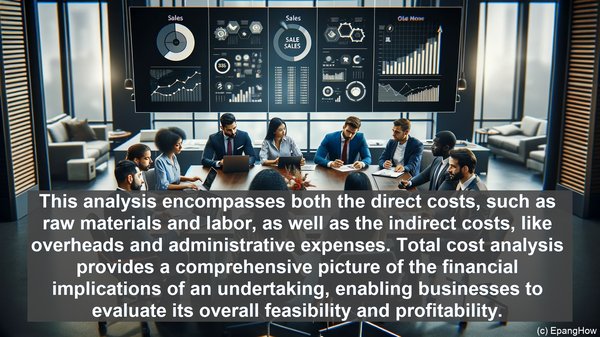Introduction
Hello everyone! In the realm of cost analysis, two terms often come up: incremental cost analysis and total cost analysis. While they may sound similar, they have distinct meanings and applications. Today, we’ll explore the differences between these two concepts, their significance, and when to use them. So, let’s dive in!
Defining Incremental Cost Analysis
Incremental cost analysis, as the name suggests, focuses on the changes in costs that occur when a business makes a specific decision. It involves comparing the costs of two alternatives and determining the difference between them. This analysis helps in assessing the financial impact of a particular choice, such as introducing a new product or expanding operations. By isolating the incremental costs, businesses can make informed decisions based on the potential benefits versus the added expenses.

Understanding Total Cost Analysis
On the other hand, total cost analysis takes a broader view. It considers all costs associated with a particular activity, process, or project. This analysis encompasses both the direct costs, such as raw materials and labor, as well as the indirect costs, like overheads and administrative expenses. Total cost analysis provides a comprehensive picture of the financial implications of an undertaking, enabling businesses to evaluate its overall feasibility and profitability.
Key Differences
While incremental cost analysis focuses on the changes between alternatives, total cost analysis encompasses the entire cost spectrum. Incremental cost analysis is often used for short-term decisions, where the immediate financial impact is crucial. Total cost analysis, on the other hand, is more suitable for long-term planning and evaluating the overall financial viability of a project. Another significant difference is the level of detail. Incremental cost analysis typically involves a more granular examination, while total cost analysis looks at the bigger picture.
Real-World Examples
To better understand these concepts, let’s consider a couple of real-world examples. Suppose a manufacturing company is deciding whether to upgrade its machinery or continue with the existing equipment. Incremental cost analysis would involve comparing the costs of the new machinery, including installation and training, with the costs of maintaining the current setup. On the other hand, total cost analysis would consider not just the immediate expenses but also factors like the expected lifespan of the machinery, maintenance and repair costs over time, and the potential impact on production efficiency.

